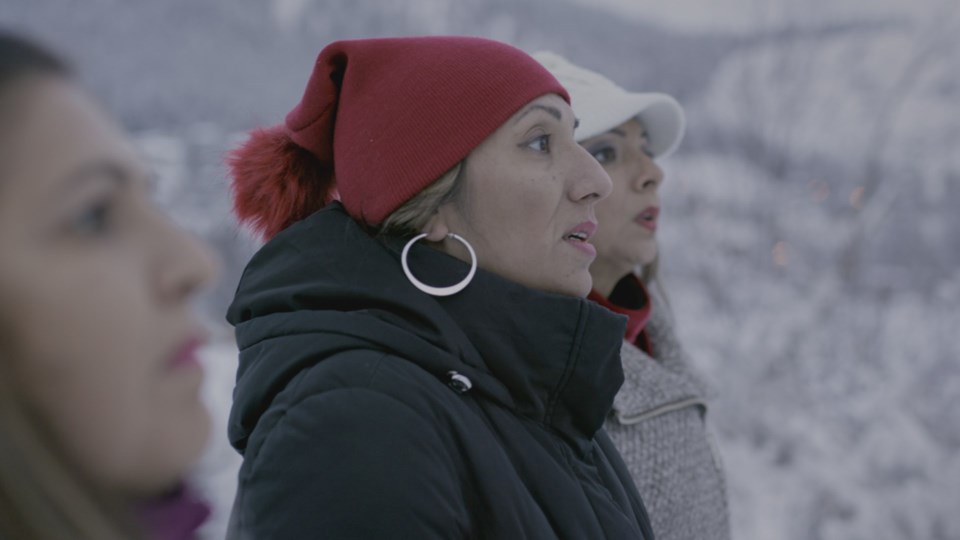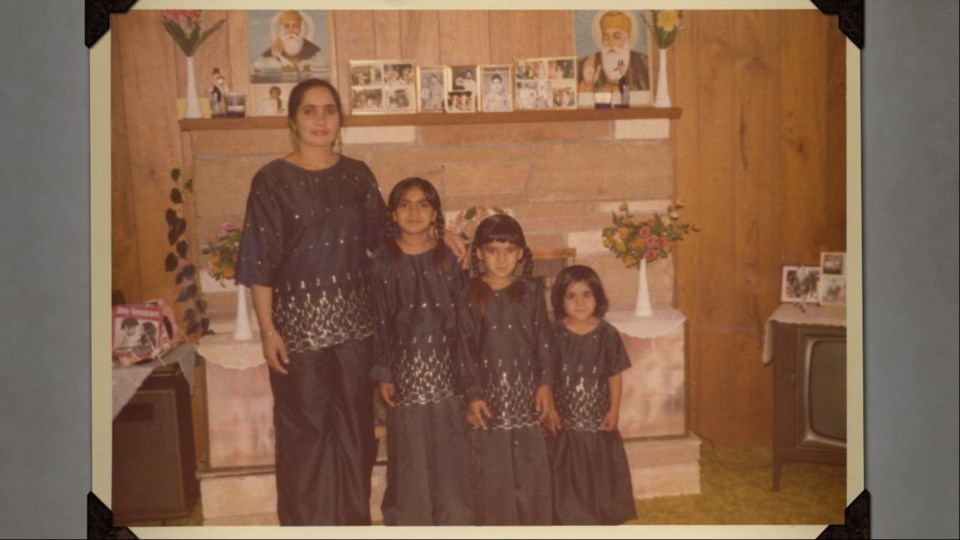You don’t need to be South Asian to recognize the collective bravery of Jeeti, Kira and Salakshana Pooni.
When they were children, the sisters were sexually assaulted repeatedly over a number of years by an elder male relative.
Decades passed. The sisters broke their silence and filed charges against their abuser. They shared their story with Vancouver filmmaker Baljit Sangra for her documentary Because We Are Girls. They’re undeniably and inarguably brave.
But I am South Asian. I screened Because We Are Girls through the lens of my cultural heritage, and I can tell you that Indian culture is conservative. It frames girls as lesser beings, avoids discussions around sex, places blame for abuse on the victims and demands respect for male elders.
And watching Because We Are Girls through that cultural lens, the bravery of the Pooni sisters becomes even more impressive. It becomes startling and audacious and revolutionary.

“In the South Asian community, we have a hard time talking about taboo subjects, and sex shouldn’t be a taboo subject,” says Sangra. “If we can’t talk about sex, how are we going to talk about sexual violence?”
Thus, Sangra’s feature-length documentary film — which had its world premiere last week at the Hot Docs Festival in Toronto, and will open the 2019 DOXA Documentary Film Festival this week — is something of a conversation starter for the South Asian community.
It’s also the document of a family who immigrated to Canada in the early 1970s and settled in Williams Lake.
“I wanted to establish some context,” says Sangra. “They came as immigrants, they lived in a small town, they faced racism, the parents were super young, they had all of this pressure to bring their families over and the only fun that the family shared together was going to the cinema to see a Bollywood movie every couple of weeks.”
But the Bollywood films weren’t just an escape for the sisters. “Bollywood influenced their notions of romantic love and female roles,” says Pooni.
In turn, these notions informed how they responded to — and kept silent about — the sexual abuse.
Because We Are Girlsisn’t intended to skewer or condemn South Asian culture, adds Sangra.
“Coming from the same background as [the Poonis], I understood a lot, and I was really careful about how this film was going to portray [the culture]. I absolutely did not want any stereotypes. It would be easy to do a film like this and slam the culture. But it’s very layered.”
Sangra met middle sister Jeeti years ago, after a screening of her documentary Warrior Boyz (which examined the ecosystem of Indo-Canadian gangs in the Lower Mainland). The two became friends, and later Sangra leapt at the opportunity to make a documentary about the sisters. She filmed them over three years, beginning with a hearing at the Supreme Court in Williams Lake.
“Just to be on this journey with them and to bear witness to all of that has been very empowering for me,” says Sangra. She was still with them in late 2017, when #metoo became a movement. “I watched the #metoo movement unfold and recognized that the sisters were part of the #metoo movement, and voices of the #metoo movement.
“This changed me for life,” adds Sangra. “I know that after this movie, I’m going to invest a lot of time and energy in, ‘How do we take this movie out in the communities and get panels, get discussions, get allies?’ I’m in. Jeeti is in. It’s going to be our time.”

The film is rich with intimate moments. There are moments of heartbreak and moments of triumph. The sisters dance. They sing. The cry over chai, as they hold each other on their parents’ settee, remembering the past.
“The subject matter is dark, but we balanced it out with laughter and celebration, because that’s also who they are,” says Sangra. “They’re not defined by being victims of sexual abuse. They’re so much more than that.”
One thing you don’t see in the film is the abuser. He isn’t named. He exists on the periphery.
“This is about the women,” says Sangra. “It’s about family. It’s about so much more. A lot of these stories, the focus is on the accused. It’s not about him. He’s impacted all their lives, but it’s their story. We want to take that power away from him.”
Because We Are Girlswas produced by the National Film Board of Canada. It screens May 3, 7, and 12 at DOXA. Tickets at doxafestival.ca.
sabrina@yvrscreenscene.com


